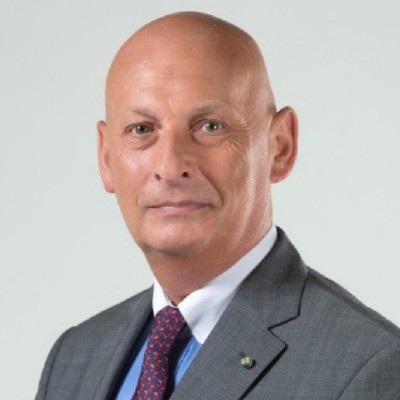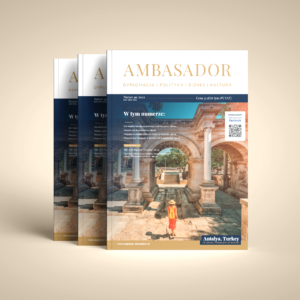Ada Krzewicka talks to Tomasz Orłowski, author of the book “Diplomatic practice” and a long-time Polish diplomat.
How did the idea for this book come about?
The idea for the book was suggested to me by the director of the Polish Institute of National Affairs, Slawomir Dębski, who, on during one of our conversations, made me aware of the fact that every large country with traditional diplomacy has a manual of knowledge and custom, which is the identity of that country’s diplomatic service. The first excellent model we can refer to is Ernest Satow’s English textbook ‘Diplomatic Practice’ written in 1911. This manual has been reissued eight times and each time modernised by successive generations of English diplomats. Director Debski also suggested that Poland does not have such a manual. It would be appropriate for the Polish diplomatic service, which is a service with a long tradition, with its own customs and with many past successes, and also characterised by a high sense of belonging to common ideals and forming a certain community, to have a manual similar to that of the English.
What is the role of diplomacy in state foreign policy?
Diplomacy has customarily been the executor of a state’s foreign policy. In the past, when a state’s foreign policy was largely dictated by the ruler, i.e. in the days before the advent of the parliamentary democracy model, it was the ruler who ‘had’ diplomacy, i.e. a team of people working for him and carrying out the policies that the king himself set. When diplomacy became democratic, this started in 19th century England, when we no longer have diplomacy from the monarch, but diplomacy that finds its source in parliament, i.e. the will of the elected majority that represents the people, diplomacy still played a very important role, but the ‘voice’ began to be heard from the public, who began to express their opinions as to the directions of the state’s foreign policy. Then came the time of the media, first in the form of the telegraph agencies, which initially reported what was happening in the world, then radio, television and finally social media, where diplomacy again had to refer to how its actions were judged by the media sector. This is a situation where diplomacy started to become more and more dependent on other social forces. Then came the time when diplomacy no longer had a monopoly on state foreign policy-making. Various actors have emerged to influence the foreign policy of the state, such as non-governmental organisations, which have their own forms of global networking. Other actors influencing foreign policy are various international organisations, of which Poland is a member state. They generate foreign policy by adopting recommendations, adopting conventions to introduce new elements, be it international law or national relations. Diplomacy is already becoming partly dependent on such decisions, and then, over time, diplomacy is increasingly becoming the task of all those interested in conducting and maintaining international contacts that may ultimately influence the foreign policy of the state. This includes local and regional governments, provinces that pursue a policy of cross-border cooperation, cities that have twinning relationships with other cities. More and more diverse actors have an influence on the future shape of the state’s foreign policy. In this sense, diplomacy remains a tool of the state in the conduct of foreign policy, but no longer has a monopoly on policy.
What is diplomatic practice?
Diplomatic practice is, in simplest terms, the sum of three elements: knowledge of international politics, erudition and experience. It has like a textbook that provides a compendium of knowledge on the working methods of diplomacy, both bilateral and multilateral. It is a highly personal and authoritative study, as it is based not only on knowledge, but also on lived experience – anything that a diplomat can pass on to the next generation as his or her guidance for possible use by future generations. The notion of ‘practice’ also refers somewhat to the craft world. Craft guilds, as organisations of craftsmen, have always been made up of masters who took on apprentices, while journeymen entering the profession apprenticed, i.e. learned their trade under the guidance of senior masters. This is a practice/habit that we have transferred to the diplomacy arena by recording what the diplomat has accumulated during his or her working life and tries to pass on to the next generation as guidance and knowledge to educate the younger generation.
Lorem ipsum dolor sit amet, consectetur adipiscing elit, sed do eiusmod tempor incididunt ut labore et dolore magna aliqua. Tellus in metus vulputate eu scelerisque felis imperdiet proin. Non blandit massa enim nec dui nunc mattis enim. Vestibulum rhoncus est pellentesque elit ullamcorper dignissim. Nulla porttitor massa id neque aliquam vestibulum. Odio euismod lacinia at quis risus sed vulputate odio. Laoreet sit amet cursus sit amet dictum. Elementum curabitur vitae nunc sed velit dignissim. Pulvinar elementum integer enim neque volutpat ac tincidunt vitae. Elementum integer enim neque volutpat ac tincidunt vitae semper quis. Leo vel orci porta non.



Sledź nas na: